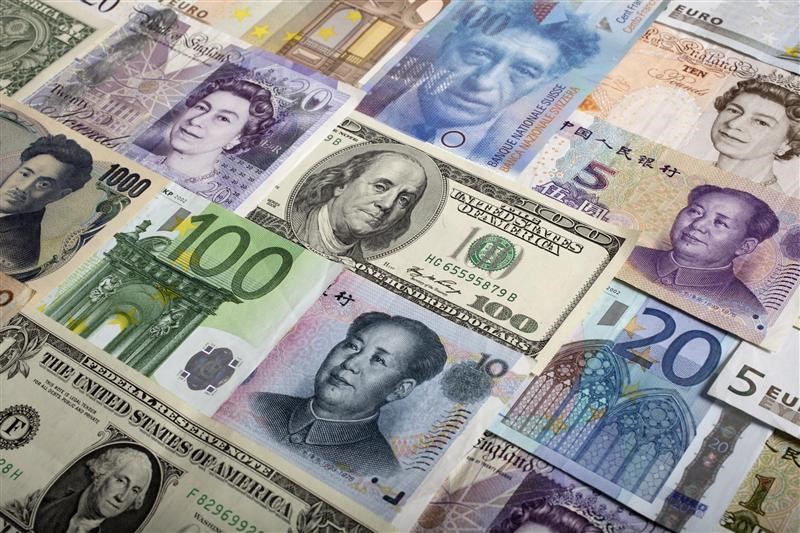* Safe haven yen slips as risk appetite recovers
* Fears of global trade war recede
* Euro firmer vs yen after surging 1.4 pct on Monday
(Updates prices)
By Masayuki Kitano
SINGAPORE, March 27 (Reuters) - The safe haven Japanese yen sagged on Tuesday as optimism that the United States and China could begin negotiations on trade helped ease concerns about a trade war, reviving demand for riskier assets.
Global markets were shaken last week after U.S. President Donald Trump moved to impose tariffs on Chinese goods and Beijing threatened similar measures, sparking fears of a trade war between the world's two largest economies.
But reports of behind-the-scenes talks between the United States and China have eased concerns for now that global trade frictions could escalate out of control, with traders hoping any actual U.S. measures will be much more modest than first announced.
Chinese Premier Li Keqiang said on Monday it and the United States should maintain negotiations, reiterating pledges to ease access for American businesses. receding concerns over U.S.-China trade tensions whetted investor appetite for riskier assets. Wall Street scored its best day in 2-1/2 years and the Dow Jones Industrial Average saw its third-biggest point gain ever on Monday. is this sense in the market that the situation might not escalate into a trade war," said Satoshi Okagawa, senior global markets analyst for Sumitomo Mitsui Banking Corporation in Singapore, adding that China's relatively moderate reaction had helped soothe such jitters.
The yen, often viewed as a safe haven currency in times of market turbulence and economic uncertainty, partly because of the resilience provided by Japan's current account surplus, retreated due to the revival in investor risk appetite.
With the yen on the defensive, the dollar rose 0.2 percent to 105.62 yen JPY= . The greenback has bounced back after hitting a 16-month low of 104.56 yen on Monday.
Market participants said the yen showed limited reaction to testimony in Japan's parliament by a former finance ministry official, who said Japanese Prime Minister Shinzo Abe, his wife, Finance Minister Taro Aso and their top aides did not give instructions to change documents about a land deal at the heart of a suspected cronyism scandal. simmering controversy has slashed Abe's support ratings and clouded his chances of a third three-year term as ruling Liberal Democratic Party (LDP) leader in a September party vote.
The political scandal has been seen as a factor that could spur yen-buying, as it has cast some doubt over the future of Abe's reflationary economic policy agenda, including monetary stimulus.
The euro rose 0.2 percent against the yen to 131.53 yen EURJPY=R , after surging 1.4 percent on Monday for its biggest one-day percentage gain since June 2017.
Against the dollar, the euro rose 0.1 percent to $1.2454 EUR= , clinging near Monday's high of $1.24615, which was the euro's strongest level since mid-February.
Comments from Jens Weidmann, Germany's likely candidate to become the European Central Bank's next president, helped bolster the euro on Monday.
Weidmann said market expectations of a rate hike towards the middle of next year were "not completely unrealistic", a view shared by the broader market, although some expect a rate hike by the first quarter of 2019. firmness of some of its major rivals as well as emerging market currencies helped weigh on the greenback.
The dollar's index against a basket of six major peers held steady at 89.042 .DXY , languishing near Monday's five-week low of 88.979.
Emerging Asian currencies rose, with the Malaysian rinngit hitting a two-month high of 3.8700 MYR= per U.S. dollar.
"The stars are beginning to align again with the ringgit's fortunes," Stephen Innes, head of trading in Asia-Pacific for Oanda in Singapore, said in a note, adding that buoyant oil prices were helping to support the ringgit.
Brent crude oil futures LOCc1 have risen 6.9 percent in March, supporting the currencies of commodities exporters.
China's yuan extended its gains against the U.S. dollar to a seven-week high on Tuesday after the central bank set its official fixing at the strongest level in more than two-and-a-half years. CNY/
